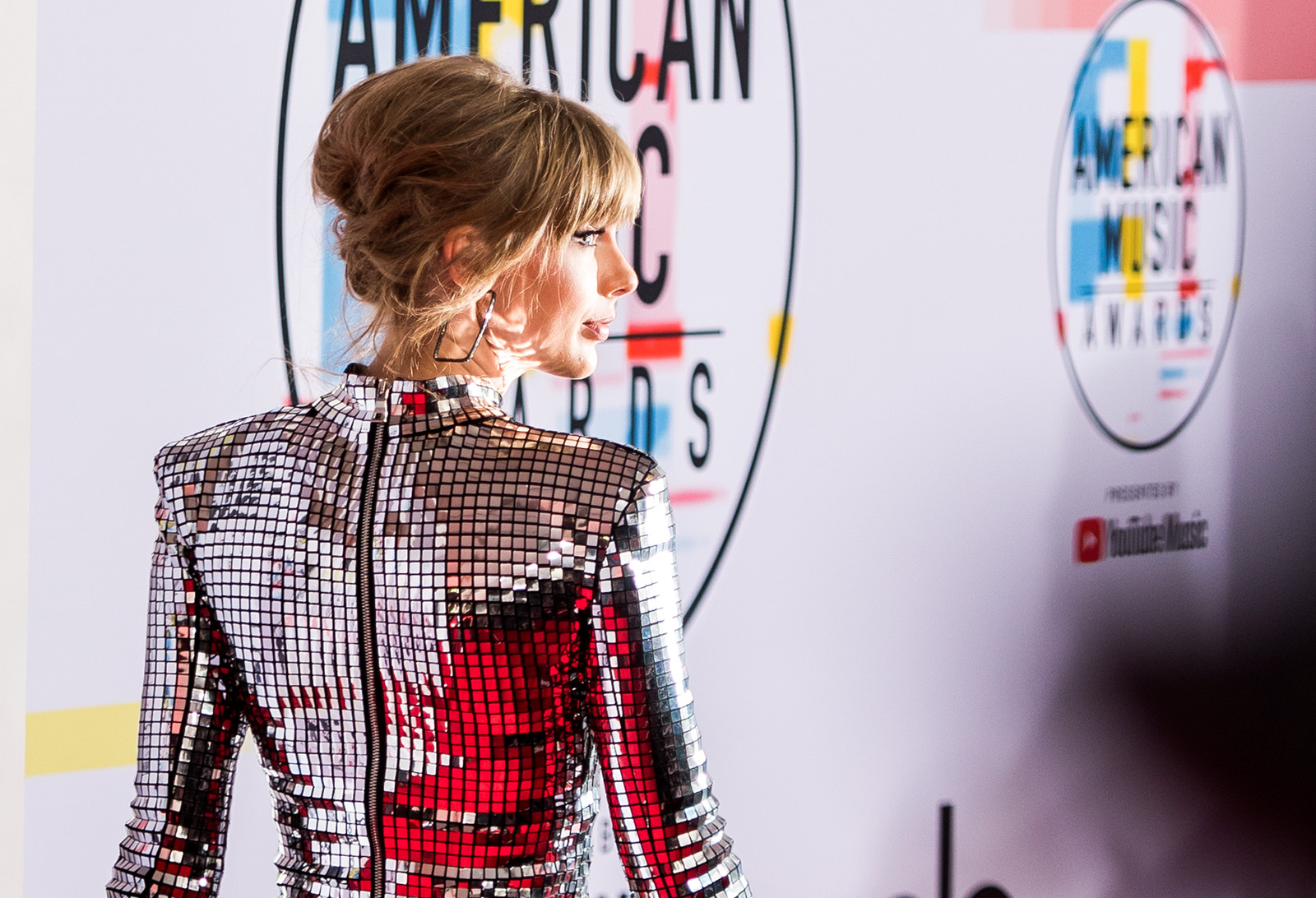Second Take: Taylor Swift’s political advocacy engages typically inactive demographic

(Kristie-Valerie Hoang/Daily Bruin senior staff)
By Olivia Mazzucato
Oct. 22, 2018 11:08 p.m.
Nov. 6 – Taylor Swift is ready for it.
On Oct. 7, Swift posted on her Instagram, urging her followers to register to vote in the upcoming midterm elections and informing them she would be voting for Democrat Phil Bredesen for the U.S. Senate – a far cry from her apolitical past. Swift joins a growing number of celebrities – from Lin-Manuel Miranda to Robert Downey Jr. – involved in voter registration campaigns for the upcoming midterms.
Though some have pushed back on celebrity involvement in politics, citing inauthenticity or lack of knowledge, celebrities are part of an important effort to shift the culture around depoliticizing the act of voting for their audiences.
However, we also must acknowledge the privilege inherent in such a conversation, especially in a culture that has historically disenfranchised certain groups of people. For example, a North Dakota law mandates that IDs display a residential address, which disqualified many Native Americans who instead use P.O. boxes. Another case is Georgia’s “exact match” law, which places voter applications on hold if there are any discrepancies between the application information and the information on file with the state and has disproportionately impacted the state’s African-American population.
In the face of such pervasive and structural voter suppression, it feels ingenuous to laud privileged celebrities for telling you to vote. We live in a country that has not always protected universal access to voting, and yet half of the battle of election season is getting people to exercise their right. Swift’s impassioned plea to vote won’t necessarily resonate with people who have been systematically disenfranchised – it may just sting.
But part of accepting Swift’s and other celebrities’ advocacy is understanding that they are targeting a different group of people with a distinct message – those who can vote should vote.
Swift reaches a particular group of people who often fail to turn out for elections – the 18- to 29-year-old demographic, which consistently has the lowest participation of every age group eligible to vote. When people like Swift talk about voting, their discourse helps normalize and simultaneously glamorize the process. Celebrities and their fans have a certain type of connection over social media that sometimes feels more genuine than a PSA campaign. They exist outside the world of politics too, which can help engage potential voters who are not politically motivated.
In the past, Swift has been criticized for staying silent on her personal politics, particularly during the 2016 presidential election, where she avoided endorsing or denouncing either candidate. While some felt her post was opportunistic and sought to capitalize on popular feeling – Swift made the post days before the American Music Awards – Swift said that she felt the need to speak out now because of her own convictions and the changing state of the country.
Voter turnout in the U.S. has historically been low. Only 60.2 percent of eligible voters cast a ballot in 2016, and, in the last midterm election in 2014, only 36.7 percent of eligible voters voted. One Pew Research Center study ranked the U.S. 26th of out 32 Organization for Economic Cooperation and Development nations.
It is hard to quantify exactly why people don’t vote, but many cite personal aversion to politics as a reason. Voting shouldn’t be seen as a hyperpolitical action. It should be seen as an important part of being an adult citizen in this country, as natural as driving on the right side of the road or paying taxes. Instead, there’s a culture built around the idea of voting that has turned it from a universal right into a niche activity.
By advocating for voting, Swift proves that you don’t have to be a politically minded person to vote. In her post, Swift focused on her personal beliefs and her desire to see her values reflected by the people who represent her in the government. By framing voting as an everyday action, something “quick and easy to do,” Swift and other celebrities could help challenge cultural perceptions of voting and make it a more universal action.
Some argued she should stick to singing, but Swift’s lack of direct expertise in politics may actually be a plus in increasing voter registration. Although the looming registration deadline may have been more of a contributing factor, in the 24-hour period after Swift’s post, Vote.org reported that 65,000 people registered to vote, compared to the 190,178 registrations nationwide in September and 56,669 in August.
Both elements of the conversation are important. We need to bring people to the table so that they can participate in the democratic process, and we also need to engage them in a discussion about privilege. Both can and should happen, and the involvement of celebrities and artists is a necessary step forward in changing the culture.


